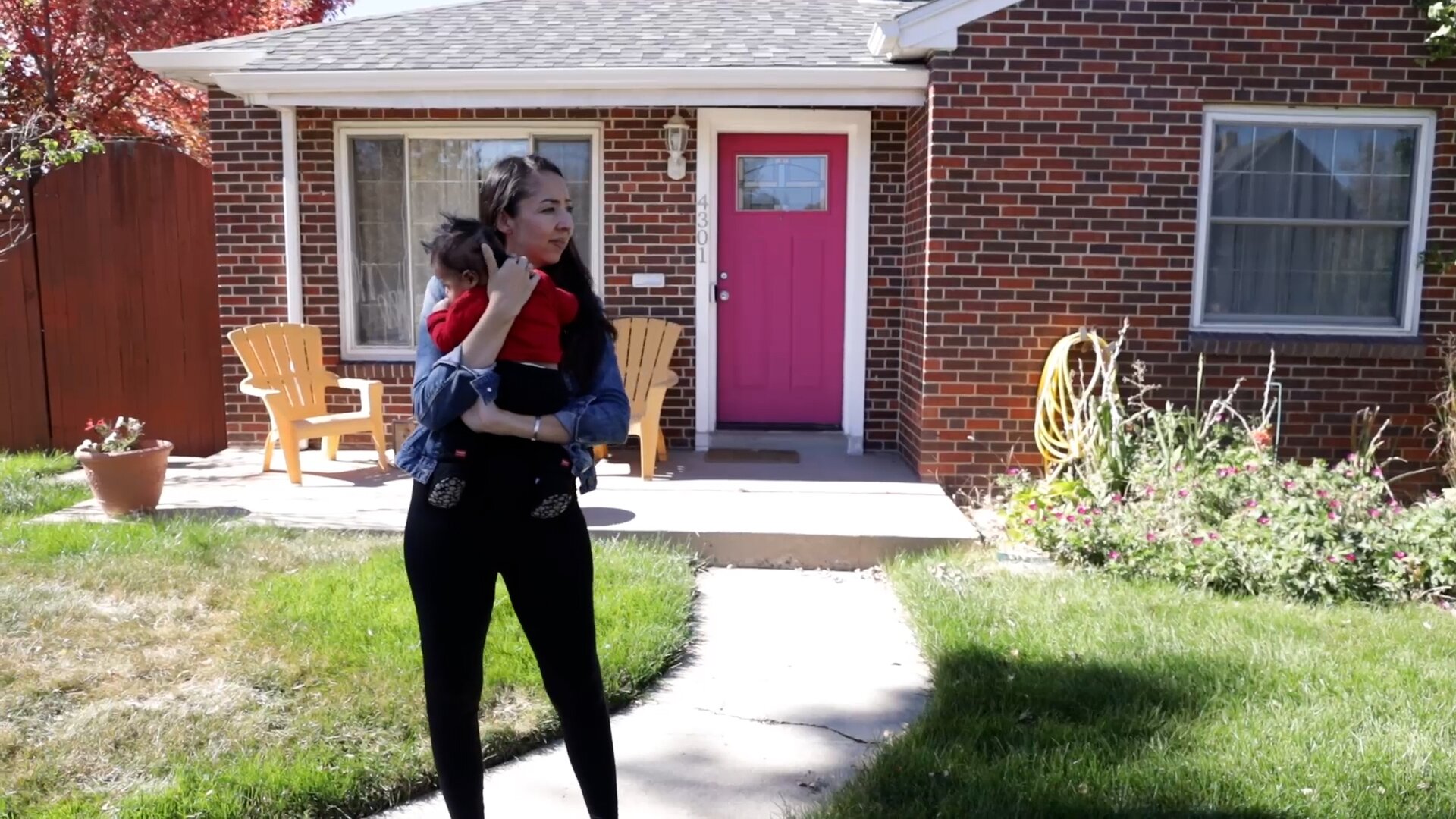How a Denver neighborhood became one of the most polluted zip codes in America

This story is part of reporting for an upcoming episode of Colorado Experience titled, The Most Polluted Zip Code. Learn more here.
DENVER — At home in the Swansea neighborhood of Denver, Candi CdeBaca introduces her newborn son to the house where four generations of their family have lived. One day, it will be his. She rocks him in the backyard on a chair that holds more weight than just the physical.
“Being able to sit over there on my rocking chair and watch the sunset and remember playing in the yard and knowing that my grandparents sat here, watched the same sunset, watched their kids play here,” said CdeBaca, “I'll get to sit there and watch my kids play in the same place, that's important.”
The community, the connection to the land, and the history are what keep CdeBaca here despite living in the most polluted zip code in America. The 80216 zip code, which includes the Denver neighborhoods of Globeville Elyria-Swansea and part of Commerce City, ranked as the most polluted zip code in America in a 2017 study from ATTOM Data Solution. The study examined homes around the country for risk factors in four different environmental hazards: superfunds, brownfields, polluters or poor air quality.
The 80126 zip code has all the hazards, which is not a surprise to CdeBaca.
“We are the nexus of all transportation systems in the region with freight one block away, with the highway three blocks away, with the passenger rail line one block away, like all of those things are so important and critical to our region,” said CdeBaca, “yet we've been virtually absent from decision making for the entire time we've been a part of the city of Denver.”
CdeBaca became the Denver city council member representing the 9th district in 2019 in part to change that. She lost a reelection bid this summer, but she continues to advocate for her neighborhood and its struggle against environmental injustices.
“[From the] moment where … I could read I recognized there's something going on with the pollution in my neighborhood,” she said.
CdeBaca struggled with asthma throughout her childhood. She also learned about Superfund sites, brownfields and Denver’s pollution growing up.
After moving to Washington D.C. in 2009, CdeBaca picked up running and realized that her asthma had mostly gone away. She assumed she had outgrown it, but in four years when she moved back to Denver and her family home, her asthma returned.
“The conclusion that I drew based on that experience was that my asthma was directly connected to living in a Superfund site,” CdeBaca said. “Then that made me start to think about, kind of, all of the other things that I had normalized that were not normal in comparison to my peers.”
She started to take a closer look at her life and realized she knew more people than normal who had cancer and more people who had respiratory illnesses and could only conclude that it was an outcome of living in a Superfund site.

Candi CdeBaca looks out at her neighborhood street, knowing it is one of the most polluted zip codes in America and determined to make it better.
There are two Superfund sites in the 80216 zip code due to more than a century of polluters setting up shop in north Denver, including several smelters, a refinery and animal processing plants. On top of that, both I-25 and I-70 cut through the neighborhoods, pumping carbon monoxide into the air every day.
CdeBaca became more deeply involved in environmental advocacy following the recent expansion of I-70 through her zip code. She led several efforts, including lawsuits against the Colorado Department of Transportation, the City of Denver and the Environmental Protection Agency to stop the expansion of the highway, arguing that it would cut further into her neighborhood and bring more cars and exhaust fumes to the area.
“Fighting to stop the expansion kind of showed me the intersection between federal, state and local politics and policy and it was pretty eye opening to me to realize how much power really sits in the hands of folks who are in local government and municipal government,” CdeBaca said.
The four lawsuits filed in 2017 to stop construction were dismissed or ruled in favor of the defendants. In one case settled, which resulted in a health study for the Globeville, Elyria and Swansea neighborhoods and additional money for planting trees and vines along the highway. Construction expanding I-70 began in 2018 and finished in July of 2023.
This is why she and other 80216 residents continue to advocate for their community where they can. As a new mom, CdeBaca says she has even more to fight for.
“For me, [it's] particularly important as someone who's grown up in poverty, as someone who is Indigenous, to always have a piece of land that we call home that we have control over,” she said. “No matter how small it is, no matter where it is, even if it is in the most polluted zip code in America, this will always be a piece of land my descendants will have the ability to lay claim to.”
TIMELINE — The History of the Most Polluted Zip Code
Thank you to Alex Hernandez, a special collections librarian with Denver Public Library who provided information for the timeline below. You can read more about the Globeville Neighborhood History here.
